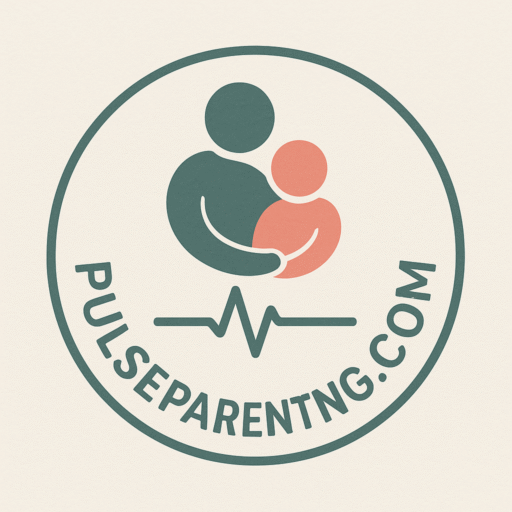The Story of Emma
At first, Emma’s parents thought it was just “teen stuff.”
She was spending more time in her room, scrolling through her phone, and getting quieter at dinner. “She’s just growing up,” her dad said. “Teens need space.”
But over the next few months, small things began to add up.
Her grades dropped, she quit the soccer team, and laughter became rare. Her mom noticed dark circles under her eyes and that Emma often stayed awake past midnight. When asked what was wrong, Emma shrugged and said, “I’m just tired.”
Tired became withdrawn. Withdrawn became irritable. Soon, Emma barely spoke at all.
Her parents didn’t realize that what looked like a “phase” was actually the early signs of anxiety and depression—conditions that often begin quietly in adolescence and can deepen if left unnoticed.
Why It’s Easy to Miss
Teenagers are naturally emotional and changeable; they’re discovering their identities, managing social pressure, and navigating hormones.
But anxiety and depression go beyond mood swings. They are persistent emotional and physical patterns that affect how a teen thinks, feels, and functions.
Parents often miss these signs because they can look like:
- Normal independence (“They just want to be alone”)
- School stress (“Everyone’s anxious about exams”)
- Laziness (“She’s always tired and unmotivated lately”)
The truth? Mental health struggles in teens often disguise themselves as everyday behavior changes.
Signs Parents Should Watch For
Here are some key early signs that your teen might be struggling with anxiety or depression:
💭 Emotional and Behavioral Signs
- Withdrawal from family, friends, or favorite activities
- Irritability or emotional outbursts over small issues
- Expressions of hopelessness (“What’s the point?” or “I can’t handle this anymore”)
- Sudden drop in confidence or self-esteem
🕐 Physical and Routine Changes
- Noticeable changes in sleep (sleeping too much or too little)
- Loss of appetite or overeating
- Frequent headaches, stomachaches, or fatigue
- Neglecting personal hygiene or appearance
🏫 Performance and Motivation
- Drop in grades or trouble concentrating
- Procrastination or loss of interest in schoolwork
- Giving up on hobbies or quitting sports/clubs
What Parents Can Do
The earlier you notice and respond, the better the outcome. Here’s how you can help:
1. Start with Compassionate Curiosity
Instead of saying, “What’s wrong with you?” try,
“I’ve noticed you’ve seemed really tired and quiet lately. How are you feeling?”
Keep your tone calm and open. Teens often test whether it’s safe to be honest — your reaction determines if they’ll keep talking.
2. Listen Without Fixing
Resist the urge to jump into solutions. Just listen and validate.
“That sounds really hard.”
“I can see why you’d feel that way.”
Validation builds trust — it tells your teen that their emotions are real and respected.
3. Encourage Support, Not Silence
If your teen is struggling, normalize seeking help.
Explain that therapy or counseling isn’t a punishment — it’s a tool, like tutoring for mental health.
You might say:
“You don’t have to go through this alone. Talking to someone can really help.”
4. Model Emotional Health
Teens watch how you handle stress.
Share (appropriately) how you manage anxiety, ask for help, or take care of yourself. Modeling self-care shows them it’s okay to do the same.
5. Involve Professionals When Needed
If signs persist or worsen, reach out to your teen’s school counselor, pediatrician, or a licensed mental health therapist. Early intervention can prevent deeper struggles and teach lifelong coping tools.
The Turning Point for Emma
After a tearful night, Emma’s mom decided to reach out to the school counselor.
That led to therapy, where Emma slowly learned to talk about her anxiety. With time, routines, and support, she began to smile again — not because everything was perfect, but because she felt understood.
Her parents learned that spotting the signs wasn’t about overreacting — it was about responding before things got too heavy to carry alone.
🌱 Final Thoughts
Every teen has hard days, but when sadness, fear, or withdrawal become the norm, it’s a sign to check in.
As a parent, you don’t have to have all the answers — you just have to be present, patient, and proactive.
A small conversation today might be the lifeline your teen needs tomorrow.
Other resources
Recommended Articles on Early Signs of Depression
- What Are the Symptoms of Depression in Teenagers? (Child Mind Institute) — Covers how depression often looks different in teens (irritability, withdrawal, mood shifts) and why early recognition matters. Child Mind Institute
- Parent’s Guide to Teen Depression (HelpGuide) — A parent-facing article that discusses signs, differences from adults, and support strategies. HelpGuide.org
- Signs and Symptoms of Youth Depression (Nevada Suicide Prevention) — A helpful checklist of warning signs in adolescents. Suicide Prevention
- Deciphering the Signs: Hidden Hints of Teen Depression (Youth Ranch) — Offers insight into subtle changes that often precede clearer symptoms. Youth Ranch
- 3 Things Parents Need to Know About Adolescent Depression (Texas Children’s) — A concise, parent-friendly overview from clinicians on what to observe and do. texaschildrens.org

